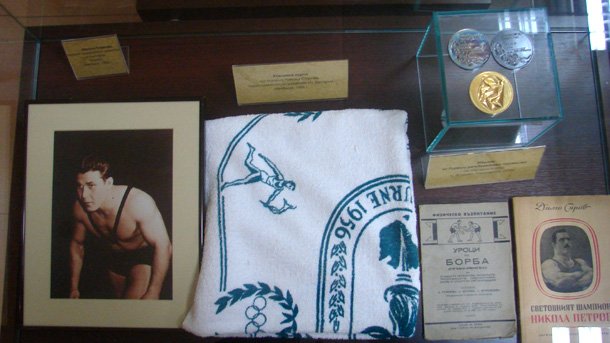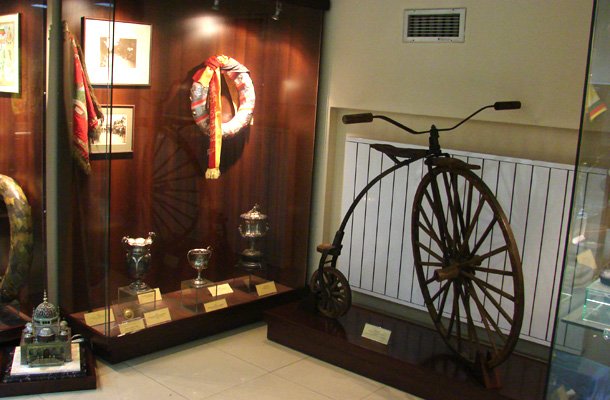Sport is a source of health and discipline. However, for us Bulgarians it is often a ground for national unification and pride. The full history of Bulgarian sport is shown in the National Museum of Physical education and Sport. Situated in the central body of the National Football Stadium-“ Vassil Levski”, the museum is now among the 100 national places of interest. Who gave the start of the modern sports in Bulgaria? After the liberation of Bulgaria from the Ottoman Yoke, which lasted for 5 centuries, in 1878 our country began to gain experience from Europe in the creation of its institutions. In the sport field the Swiss system was implemented.


“Wrestling is traditionally a Bulgarian sport. This is the sport discipline that brought the biggest fame to Bulgaria. The first Olympic Champion in Bulgarian History was the wrestler Nikola Stanchev, who won the Olympic gold medal in Melbourne in 1956. Wrestling is the only sport which has been developing evenly over the years, without periods of great crisis. Other traditional sports are the rifle practice, boxing, weightlifting and rhythmic gymnastcs. Bulgaria is traditionally good at the sport gymnastics, where we had representatives in almost all Olympic Games. The most popular Bulgarian gymnast is Yordan Yovchev who remained in the history of the world gymnastics with his record sixth Olympic quota.”
When looking at the window-displays of the museum, visitors often ask why three of them are dedicated to cycling?


Without a doubt, Football is the sport Bulgarians are most interested in. We all remember Bulgaria’s biggest achievement in this sport at the World Cup finals in USA in 1994. Bulgarian football has marked two more significant successes, yet at Olympic Games. Few people know that our national football team won bronze medals at the Olympic Games in Melbourne in 1956. A bigger success was marked at the Olympic Games in Mexico in 1968, where the national squad won silver medals.
Bulgarian sportsmen have shown high sports skills, winning medals at the biggest sport contest- the Olympic Games. What is the Olympic history of Bulgaria?
“Bulgaria was among the 14 countries, which founded the modern Olympic Games in 1896, when French nobleman Pierre de Coubertin re-established the ancient games. This is a fact that should make us proud, because the Olympic idea is humane. It is a matter of pride and honor to be an Olympic champion. Bulgaria has a few double Olympic champions- wrestlers Petar Kirov and Boyan Radev, weightlifter Norair Nourikyan, shooters Maria Grozdeva and Tanyu Kiryakov. Another Bulgarian Olympic hero is the kanuist Nikolay Buhalov who won 2 gold medals in the 500 and 1000 meter races in Barcelona in 1992. Vanya Gesheva( Canoe-Kayak discipline) is the only Bulgarian who won a full set of medals at Olympic games. For every sportsman, the Olympic Games are the peak of their career and they all aim at winning medals at this event. There is no such word as former Olympic champion. Once you win the title you always remain in the history of sports.
Translated by: Kostadin Atanasov
Photos: Maria Peeva
A peak situated in the Rhodope Mountains was named after a fairytale character. People call it Znezhanka (Snow white), because it is covered with snow most time of the year. Winter there lasts from November until May. The peak rises some 15..
Veliki Preslav is the second capital of the First Bulgarian Kingdom, Pliska being the first. After the year 893, when it was proclaimed capital of Bulgaria, it became the seat of the first Bulgarian literary school. The town remained a leading..
The town of Pernik is also known as the Miners' Town, or the town of Black Gold, because it grew and turned into a significant industrial center in Southwestern Bulgaria due to the endeavor of the local miners. The only in Bulgaria and the..

+359 2 9336 661
